Let’s get real for a second—have you ever jolted awake in the middle of the night, heart pounding, convinced you felt something crawling on your skin? Maybe you brushed it off (literally and figuratively), or maybe you sat up, flicked on the light, and did a quick sweep of the room. If you’re here, it’s probably because, at some point, you wondered: can roaches bite you at night? Honestly, it’s not just you—this question pops up all the time, and it’s way more common than you’d think. So, let’s roll up our sleeves, pour a cup of courage, and talk about what’s really going on when the lights go out and the creepy-crawlies come out.
We’ll laugh, we’ll cringe, but most of all, we’ll get to the bottom of whether cockroaches are actually biting people in their sleep, what it means for your health, and—most importantly—how you can sleep soundly without worrying about tiny, unwanted midnight visitors. Ready? Let’s dive in!
Do Cockroaches Really Bite Humans at Night?
Picture this: It’s 2 AM. You’re deep in dreamland, maybe soaring through the clouds, when suddenly… itch. Maybe it’s nothing. But what if it’s a roach?
First things first—can roaches bite you at night? The short answer is yes, technically, cockroaches can bite humans. But before you start searching for a new place to sleep, let’s get into the “why” and “how often” of it all.
Why Would a Cockroach Bite a Human?
Cockroaches are opportunistic omnivores. That’s a fancy way of saying they’ll eat almost anything—crumbs, glue, soap, and yes, sometimes they’ll nibble on a human if they’re really desperate. But—and it’s a big but—roach bites are not a part of their usual nightly routine.
Most roaches would rather scamper away from you than take a bite. Biting usually happens when:
- There’s a serious infestation and food is scarce.
- You’ve got food residue, sugar, or grease on your skin (think: sticky fingers after a late-night snack).
- They’re attracted to dead skin cells, eyelashes, or calluses (it sounds gross, but hey, it’s reality).
So, if you’re wondering, can roaches bite you in your sleep?—it’s rare, but not impossible. It’s not personal, it’s just survival instincts kicking in for these little scavengers.
Can Roaches Bite You in Your Sleep?
Let’s clear up the fear: most roach encounters happen while you’re awake. But yes, cockroaches can bite you in your sleep. It’s uncommon, but if you’re in an area with lots of roaches and not much else for them to munch on, your exposed skin (like fingers, hands, feet, or even your face) might become a target.
There are stories—some even documented—of people waking up with small, red marks, especially in places with severe infestations. But for most people, especially in cleaner environments, this is not something to lose sleep over. Think of it like winning a very unfortunate lottery—possible, but not probable.
What Does a Cockroach Bite Look Like?
Okay, but what if you wake up and you do have a suspicious bite? How do you even know it’s from a roach? Let’s break it down.
| Bite Source | Appearance | Common Symptoms |
|---|---|---|
| Cockroach | Small, red, raised bump; sometimes a cluster | Mild pain, slight swelling, itching |
| Bed Bug | Clustered, zig-zag pattern, red welts | Intense itching, swelling |
| Mosquito | Single, puffy, pink bump | Itching, less pain |
If you get bitten by a cockroach, it’s usually a single bite or a small group, not the classic “breakfast-lunch-dinner” line of bed bugs. Roach bites might be a little painful, but they usually don’t cause major swelling or intense itching—though everyone’s skin is different!
Health Risks and Reactions: What Happens if a Roach Bites You?
So, you’ve been bitten—or you’re just worried about it. Let’s talk health. Is this something to panic about? Or just a weird, gross, but ultimately harmless event?
Can a Cockroach Bite Cause an Allergic Reaction?
Like with any insect bite, everyone’s body reacts differently. Most of the time, a cockroach bite is just a small, red bump. But for some people—especially if you’re prone to allergies or have sensitive skin—it might kick off a bigger reaction. You could experience:
- Redness and swelling
- Itching or mild pain
- In rare cases, blistering or infection if you scratch too much
Kids, people with immune issues, or anyone with a known allergy to bug bites should keep an extra eye on things. If you notice major swelling, spreading redness, or any signs of infection (pus, fever, chills), it’s time to check in with a doctor—just to be safe.
Secondary Risks: Infection and Disease
Here’s where it gets a little yuckier. Cockroaches spend their days (and nights) crawling through garbage, sewers, and all kinds of nasty places. So, even though roach bites themselves rarely transmit disease, there’s always a risk that bacteria from their feet and mouthparts could get into your skin. That’s why keeping the bite clean is so important.
According to the Centers for Disease Control and Prevention (CDC), cockroaches are more likely to cause health problems by spreading bacteria and triggering allergies than by biting. But it’s always better to be cautious, right?
Real-Life Stories & Expert Insights
Ever heard the one about the guy who woke up with a weird red bump on his toe, only to find out it was a cockroach bite? It’s not an urban legend—there are actual reports from pest control experts and doctors who’ve seen these cases. But, and I can’t stress this enough, these stories are rare. Most bites heal up just fine with a little TLC. Still, it’s nice to know you’re not the only one worrying about these things, isn’t it?
What to Do If You Get Bitten by a Cockroach
Okay, so worst-case scenario: you wake up, spot a bite, and immediately start Googling “cockroach bite symptoms.” (Hey, no shame! We’ve all been there with something or other.) Here’s what you should do:
First Aid Steps for a Cockroach Bite
- Clean the area gently with soap and water.
- Apply an antiseptic to help prevent infection.
- Use a cold compress if there’s swelling or pain.
- Don’t scratch! (I know, easier said than done.)
- Watch for signs of infection: increasing redness, warmth, pus, or fever.
- If things get worse or don’t improve after a few days, see a doctor.
Home Remedies vs. Medical Treatment
For most bites, a little home care does the trick. Some people swear by natural remedies like aloe vera gel or calamine lotion to soothe itching. Just steer clear of anything harsh or unproven—your skin is already annoyed, no need to make it angrier!
But if you notice serious swelling, spreading redness, or you start feeling sick, don’t wait it out—call your doctor or visit urgent care. It’s always better to get checked out, especially if you’re not sure what bit you in the first place.
Prevention Tips: How to Avoid Cockroach Bites at Night
Now, for the million-dollar question—how do you keep roaches from getting anywhere near your bed (or you) at night? Here are some tried-and-true tips that really work:
| Do’s | Don’ts |
|---|---|
|
|
One more tip—if you have kids, remind them not to leave snacks or candy wrappers around their room. Cockroaches have a sixth sense for finding hidden treats!
Cockroach Myths and Everyone’s Questions (with Answers)
There’s a lot of wild info out there about cockroaches. Let’s bust a few myths and tackle the burning questions everyone has (but maybe feels weird about asking).
Can Cockroaches Travel on a Person?
Let’s set the record straight: yes, cockroaches can travel on a person, but it’s super rare. Roaches are not like lice or fleas—they’re not looking for a free ride. Most of the time, if you spot a roach on someone, it’s because it was startled or lost, not because it’s hitchhiking on purpose. That said, in extreme infestation cases, roaches might crawl onto clothes, bags, or even bodies, especially if there’s food residue or crumbs involved.
So, the next time you hear someone say “roaches crawl on people at night,” take it with a grain of salt. But yes, if you’re sleeping somewhere with a big roach population, it’s possible one might crawl over you—just not something to lose sleep over (pun intended!).
Are Some People More Likely to Be Bitten?
You might be wondering if roaches have “favorite” people. The answer? Not really. They’re attracted to food, sweat, and sometimes dead skin. So, if you tend to sweat a lot at night, snack in bed, or leave crumbs on your skin, you might be a tastier target. But honestly, roaches aren’t picky—they’ll go for anyone if they’re desperate enough.
Folks living in warm, humid climates or older buildings with lots of hiding spots may be at higher risk. The best defense is a clean, clutter-free space and good food hygiene.
Are Cockroach Bites Dangerous?
Let’s get real: for most people, cockroach bites are annoying but not dangerous. The main risks are infection from scratching or, in rare cases, an allergic reaction. But for people with weakened immune systems, allergies, or very young children, it’s always smart to be cautious. If something doesn’t look right, trust your gut and get it checked out.
How to Make Your Home Roach-Free (Expert Tips)
If you’ve ever had the “joy” of turning on the kitchen light and watching a dozen little legs scurry away, you know that cockroaches are tough customers. But you’re tougher. Here’s how to kick them out for good—and keep them out.
Professional Pest Control Options
Sometimes, DIY just doesn’t cut it. If you’re seeing roaches regularly, finding droppings, or noticing that familiar musty smell, it’s time to call a pro. Pest control experts have tools and treatments that can reach deep into cracks, behind walls, and in places you’d never even think to look.
Don’t be embarrassed—it happens to the best of us. A good pest control company will work with you to develop a plan, explain what they’re doing, and help you keep bugs from coming back. And yes, sometimes it takes more than one visit (roaches are stubborn, after all).
DIY Cockroach Prevention Strategies
Want to handle things on your own? You’ve got this! Start with the basics—clean up, seal entry points, remove food sources, and reduce moisture. Try traps or bait stations for minor issues, and natural deterrents like essential oils (peppermint, eucalyptus, or tea tree oil can help). Just remember, patience is key—roaches are survivors, but persistence pays off.
And if you have pets or little ones, be careful with chemical sprays or baits. Always read the label and follow safety instructions.
Conclusion
So, can roaches bite you at night? Yes, but it’s rare—and you can do a lot to prevent it. Most bites are just an unpleasant (and honestly, pretty gross) surprise, not a medical emergency. The real key is keeping your home clean, sealing up entry points, and taking action at the first sign of a problem.
Remember, you’re not alone in this. So many people have dealt with cockroaches, and you can win the battle. If you ever feel overwhelmed, reach out to a pro or chat with others who’ve been through it. And hey, if you’ve got a wild cockroach story or a prevention tip that worked wonders, share it in the comments—let’s help each other sleep a little easier tonight.
Still got questions or just want to vent about your least favorite nighttime visitors? Drop a comment below. We’re in this together—no judgment, just real talk and support!

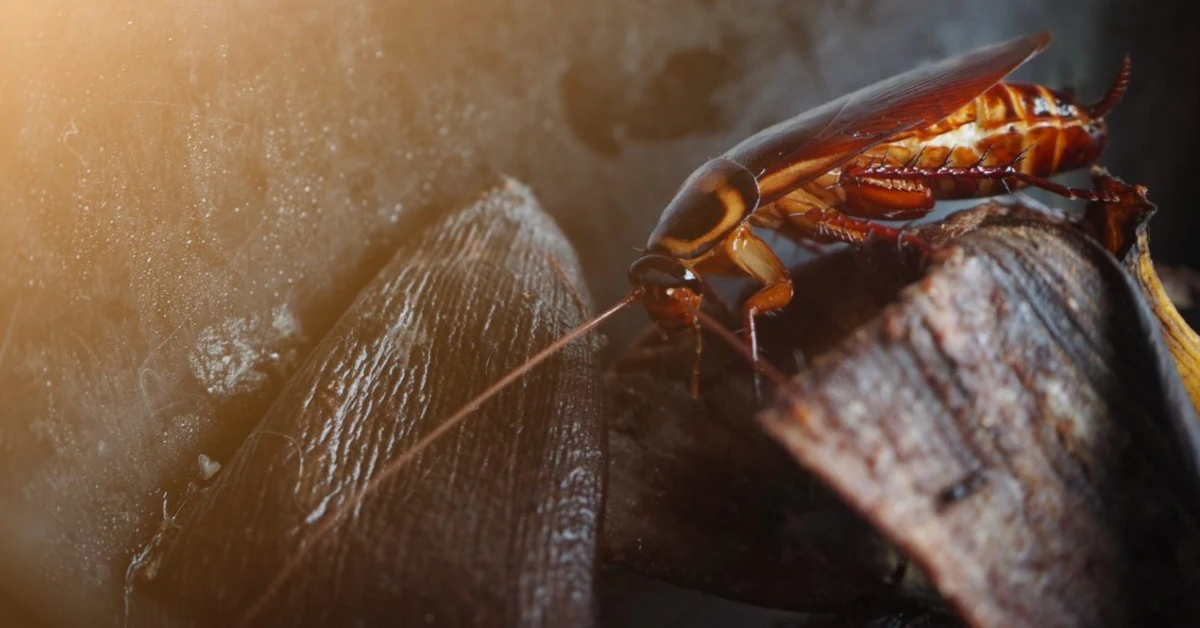
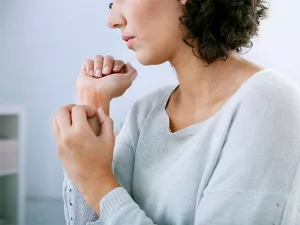





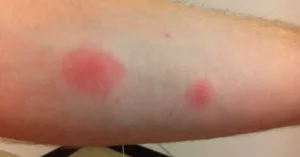
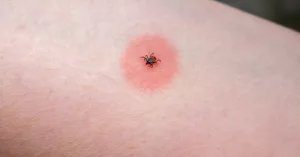












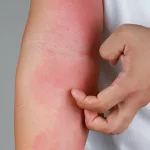


Leave a Reply
You must be logged in to post a comment.